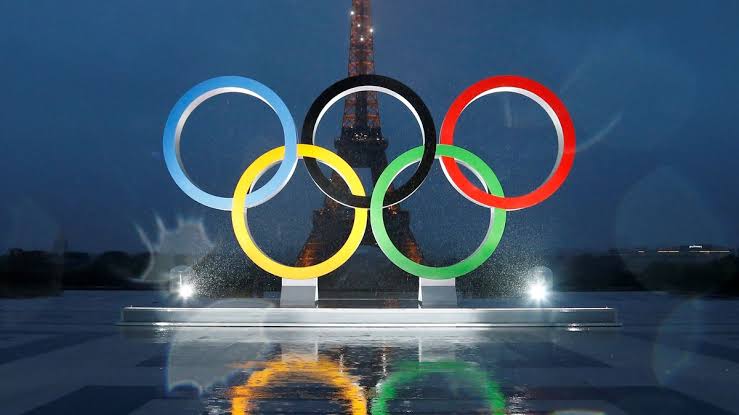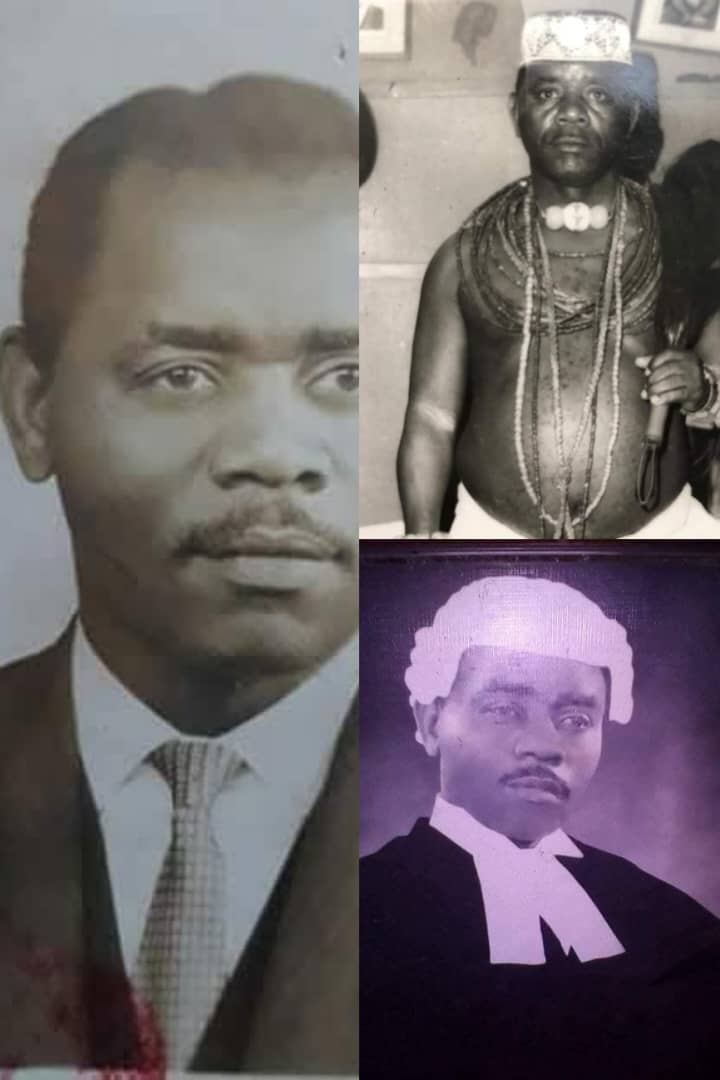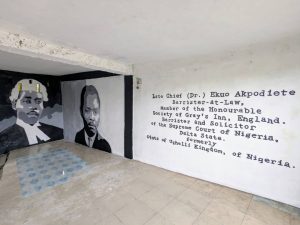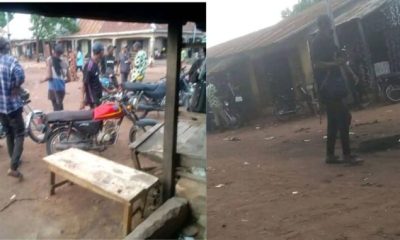Opinion
*LA Olympics 2028: Global South’s Leading Countries Need to Get Their Act Together*

*By Joseph Dimegbechie*
Judged by their own high standards, the leading economies of the Global South had a lacklustre performance at the recent Paris Olympics. Some, like China, must be feeling inconsolable. Boasting some of the most sophisticated sporting infrastructures and pedigrees, they had aspired to surpass Team USA but fell just short of the mark. China, which matched the USA in gold medals, ultimately conceded to their rivals in the total medal count, missing an opportunity to claim some prestige for the fastest-growing and largest developing economies outside the Western hemisphere. With burgeoning populations and an expanding role in international politics, nations like Nigeria, Mexico, Turkey, Brazil, Pakistan, and India must prioritize sports development as much as they do infrastructure and human resources.
Outside China, the Paris Olympics ended in disappointment for these emerging global powers. It seems they overlooked a critical element. Brazil secured only three gold medals and a modest total of 20 medals. The defeat of the Brazilian women’s football team in the finals against the USA was particularly poignant, given the country’s passion for the sport. “Better luck next time,” one might say to the Samba Girls. Mexico and Turkey each won three gold medals, while Pakistan added just one gold to a sparse tally for this collective of nations, home to the world’s largest human population and the custodians of our future. For India, which won no gold and only six medals, and Nigeria, whose team returned empty-handed, the 2028 Los Angeles Olympics present another chance to succeed and claim some bragging rights to fit their rising reputation in world politics.
Many knowledgeable commentators have argued that unless nations from the Global South elevate their performance and start to dominate the medal tally, the Olympics risk devolving to the ignominious level of the Winter Olympics, which is often mocked in much of the developing world as the “White Olympics.” However, no concessions will be made, and if these emerging nations desire a shift in power, they must earn it through developing a successful strategy and investing substantially in the cultivation and nurturing of talent. The Olympic Games are a grand display of humanity’s natural athletic ability and resilience to excel, and they are a chance for every country to show off their citizens’ physical prowess proudly. This year Nigeria has had many struggles in this prestigious global competition, but the Nigerian spirit is nothing if not unyielding and tenacious.
An avoidable issue that has encumbered Nigeria’s ability to shine at the Olympics is the ill-preparation of the country’s Ministry of Sports Development formerly headed by Sunday Dare who failed to adequately equip the Ministry for this year’s Games. With the nation’s performance in 2020’s Summer Olympics and 2022’s Winter Olympics, it should have been a wake-up call for better preparation. In Paris, this year, Favour Ofili, a promising sprinter from the national team, unfortunately found herself unable to register to compete in the competition. Similarly, Ese Ukpeseraye, a dedicated cyclist, faced challenges as well and had to borrow a bicycle from the German national team. These project an unflattering image of Nigeria especially with the number of accompanying officials going to the competition who outnumbered the athletes.
Yet another disheartening issue is the significant number of athletes with Nigerian heritage who opted to compete for other countries, such as the United States, the United Kingdom, and even less prominent nations like Bahrain. This raises questions about the sports and athletics environment in Nigeria when our own athletes prefer to represent other nations at the Olympics. Indeed, there are both positive and negative aspects to Nigerian athletes representing and winning medals for other countries. On one hand, it demonstrates the abundance of sporting talent in the country; on the other, it highlights the deficiencies in the administrative and motivational structures necessary to translate raw talent into medal counts. Despite these shortcomings, some accomplishments should be applauded.
In an official brief, John Owan Enoh, the current Minister of Sports and Development has surprisingly taken responsibility for the hindrances faced by the national team. This is unusual for Nigerian officials who love to play the blame game, ever out to save their reputation and pin it all on someone or something unrelated. Enoh has further developed a comprehensive plan to ensure Nigeria’s advancements and optimizations in future competitions, not just the Olympic Games. This is a breath of fresh air as it proves steps in the right direction are being made under the Tinubu Administration. Another important aspect of Enoh’s brief is his ministry’s resolution to renovate Nigeria’s sports facilities and refocus sports federations to bolster Nigeria’s performance on the international stage. This comes on the heels of the necessity of the country’s U-23 football team to construct a training camp in Germany before the Olympics.
But it is not all gloomy for the “Giant of Africa.” The inspiring story of Rena Wakama, a woman of Nigerian descent born in the United States of America who chose to coach Nigeria’s women’s basketball team (D’Tigress) over that of the US, shows Nigerians that even when abroad, we are proudly Nigerian, exceptionally patriotic. Ms. Wakama’s efforts were officially recognized by President Bola Tinubu as well as other individuals who have contributed to Nigeria’s place in the Paris 2024 Olympic Games. Her efforts have been fruitful with D’Tigress becoming the first African basketball team to cross the quarter-finals in the Olympics. Doping of any sort has recently become more common for athletes in the Olympic Games and Nigeria has been a repeat offender in this regard. However, this year, no competing Nigerian athlete was guilty of any form of unfair performance enhancement in Paris. This is commendable as it shows Nigeria’s national team’s dedication to good sportsmanship.
The Nigerian team returned home medal-less, yet they offered a preview of the potential for success in Los Angeles over the next four years with early preparation. Los Angeles is poised to evoke memories of the Atlanta Olympics in 1996, which was perhaps the most remarkable performance by Black Africa. The Nigerian Dream Team not only triumphed in men’s football, outplaying Brazil and Argentina the renowned powerhouses of the sport, but Chioma Ajunwa clinched Africa’s first female gold medal in a field event. The question remains: Can Nigeria replicate the Atlanta ’96 exploits in Los Angeles 2028? Given the indomitable Nigerian spirit this is certainly achievable. However, the groundwork must start now. The humility of the Nigerian Sports Minister is an indication that the Bola Ahmed Tinubu Government can build the foundations to power the dreams of all Nigerians and hope for the Global South for a Los Angeles medals table flourish!
This is not the time to propose the removal of Senator John Owan Enoh, an unusually truthful public servant, a position being canvassed in certain quarters. Rather, it is the time to accord him every necessary backing to enable him focus and prepare for Nigeria’s forthcoming sporting appearances.
*Dimegbechie a public analyst lives in Enugu*
Opinion
5G,IoT and AI to boost global GDP by 2030

By Sonny Aragba-Akpore
With Mobile technologies and services now generating around 5.8% of global Gross Domestic Product (GDP) a contribution that amounts to about $6.5 trillion of economic value, there are strong projections that by 2030, this figure will rise to almost $11 trillion, or 8.4% of GDP.
Global System of Mobile Communications Association (GSMA) says much of this will be driven by countries around the world increasingly benefiting from the improvements in productivity and efficiency brought about by the increased take-up of mobile services and digital technologies, including 5G, Internet of Things (IoT) and Artificial Intelligence (AI).
The GSMA recently introduced the 5G Connectivity Index to provide insights into 5G performance in 39 markets in order to encourage informed decision-making.
In terms of Economic Impact,
the GSMA emphasizes the economic benefits of mobile technologies and services, including 5G, projecting that they will contribute significantly to GDP growth by 2030.
“The GSMA provides specific reports and analyses on 5G in different regions, such as Sub-Saharan Africa, Asia ,Middle East among others highlighting the progress and challenges of 5G deployment in specific areas.”
In Sub Saharan Africa for instance with particular attention on Nigeria,South Africa,Egypt,Kenya and Botswana among others some measure of progress in deployment has been recorded.
The rollout of 5G has brought immense benefits across multiple industry sectors, particularly those involving internet of things (IoT) and artificial intelligence (AI) applications in which the real-time transfer of data is crucial.
More broadly, the adoption of 5G is expected to accompany increased data use across the globe, with forecasts anticipating mobile data traffic of over 300 exabytes per month by 2030, more than twice the volume consumed in 2024 according to Statista.
And with a third of global population expected to be covered by this fifth generation (5G) networks ,a technology that has defined new ways of communication by 2025 ,GSMA
says the technology has surpassed growth projections of all times.
“5G subscriptions increased by 163 million during the third quarter 2024 to total 2.1 billion. 5G subscriptions reached close to 2.3 billion by the end of 2024 accounting for more than 25 percent of all global mobile subscriptions.
“4G subscriptions continue to decline as subscribers migrate to 5G” according to GSMA.
As of the first quarter of 2024, there were nearly two billion 5G connections worldwide, with 185 million new additions. This is expected to grow to 7.7 billion by 2028.”
Statistics show that 5G is the fastest-growing mobile broadband technology, reaching 1.5 billion connections by the end of 2023.
It only took four years to reach this number, compared to 10 years for 3G and more than five years for 4G.
“5G is more than a new generation of technologies; it denotes a new era in which connectivity will become increasingly fluid and flexible.5G Networks will adapt to applications and performance will be tailored precisely to the needs of the user” GSMA submits.
By covering one-third of the world’s population , impact on the mobile industry and its customers will be profound according to GSMA.
To deepen the spread of 5G ,GSMA is working closely with the mobile operators pioneering 5G, “by engaging with governments, vertical industries including automotive, financial services, healthcare providers, transport operators, utilities and other industry sectors to develop business cases for 5G.”
And In order to accelerate the growth and spread, many operators are said to be deploying
AI technology as part of an integral part of telecoms operators’ strategic and operational plans.
“Operators are making important advancements in the deployment of AI technology, which is serving as a transformative force shaping the telecoms industry. By deploying autonomous AI-based systems, operators can enhance operational efficiency, customer satisfaction and security, while also creating new revenue opportunities”.
China, South Korea, the United Kingdom, Germany, and the United States are the leading countries with robust 5G coverage in the world.
Since the first commercial launches of the fifth generation of mobile networks in late 2018, these five countries have emerged as leaders because multiple companies in these countries have deployed networks and are selling compatible devices. Countries including Switzerland and Finland are up and comers in 5G development, though they have limited deployment.
In China there are three Companies leading in deployment.
The world’s largest 5G network was launched by the three largest Chinese network operators Oct 31, 2019, according to the state-run news agency Xinhua. These are China Mobile, China Unicom, and China Telecom which all activated their networks in less than five months after they were issued 5G licenses.
Each of the network operators offered their 5G services at $18 per month in 50 Chinese cities at the beginning of the launch.
GSMA expects 36% of China’s mobile users to be using 5G by 2025. That’s about 600 million subscribers, who would also make up 40% of the entire global 5G market by this year.
This is all despite efforts made by the United States government to hamper the progress of Chinese vendors, though those efforts may affect how Chinese companies may expand into the global market.
In South Korea,SK Telecom and Korea Telecom run as the main competitors for the South Korean 5G market.
SK Telecom acquired spectrum in the 3.5 GHz and 28 GHz frequencies to prepare for deploying 5G.
In April of 2019, the Enterprise claimed to be the first mobile carrier in the world to launch 5G services to work on 5G smartphones. SK Telecom asserted an edge over rival Verizon, as the former launched 5G services available at the same time as Samsung Galaxy S10 5G smartphone launched in South Korea. Verizon launched mobile 5G services in the U.S. before a 5G enabled smartphone was available to U.S. consumers.
SK Telecom also conducted tests with a 5G Standalone (SA) Core (a core not reliant on the 4G network) for their 5G network in cooperation with Samsung Electronics.
The world’s largest 5G network was launched by the three largest Chinese network operators Oct 31, 2019, according to the state-run news agency Xinhua. These are China Mobile, China Unicom, and China Telecom which all activated their networks in less than five months after they were issued 5G licenses. Each of the network operators offered their 5G services at $18 per month in 50 Chinese cities at the beginning of the launch.
“What we are seeing is a concerted effort by the Chinese — the operators, vendors, and government regulators — to deploy 5G as quickly as possible,” Chris Nicoll, principal analyst at ACG Research, pointed this out in a November 1, 2019 SDxCentral article.
With all of these players working together, the three network operators had collectively deployed nearly 86,000 5G base stations peaked over 130,000 by the end of 2019. The latter number breaks down into China Unicom and China telecom, with each planning to install 40,000 base stations, and the market leader China Mobile to install 50,000.This was the projection by 2019 but they have since overshot this by the beginning of 2024.
The International Telecommunication Union (ITU), says 5G coverage reached 40% of the world’s population in 2023 with an uneven coverage and distribution with developed countries having more coverage than low-income countries:
In Europe ,68% of the population is covered and
Americas had 59% of the population covered while
Asia-Pacific has 42% of the population covered as at 2023.
Arab States have 12% of the population covered.
Commonwealth Independent of States (CIS) had 8% of the population covered.
ITU figures show Africa,s coverage rose to 10 % of the population by 2023 .
The ITU also notes that 90% of the world’s population is covered by 4G, but 55% of people without access to 4G live in low-income countries because In low-income countries, 3G is often the only technology available to connect to the Internet.
The ITU develops and adopts international regulations and global standards to enable the harmonization and implementation of broadband mobile networks.
In Africa, around a dozen nations have launched services including Botswana, Kenya, Mauritius, Madagascar, Nigeria, Seychelles, South Africa, Tanzania, Togo, Zimbabwe, and Zambia but Africa is a patchwork of 54 countries.
And penetration is predicted to be slow.
By 2027, Ericsson predicts that 80 percent of phone users in Europe will have 5G service.
At the same time, 5G subscriptions in Africa, home to 1.4 billion people, May stagnate at a little over 10 percent. Why will so few people in Africa get access to 5G services?
China, South Korea, the United Kingdom, Germany, and the United States remain the leading countries with robust 5G coverage in the world.
While many countries are already providing robust services,Africa remains on the outskirts of 5G services.
The countries in Africa that have launched 5G networks, include South Africa with its roll out
In March 2022, when the Independent Communications Authority of South Africa (ICASA) sold spectrum across several bands.
In Nigeria,MTN rolled out commercial 5G services in Lagos in 2022, with other roll out in Abuja, Port Harcourt, Ibadan, Kano, Owerri, and Maiduguri among others.
MTN Congo announced that it was the first country in Central Africa to deploy 5G.
In Botswana Orange deployed 5G technology to provide new services in the Gaborone and Francistown regions.
Other countries in Africa that have launched 5G Fixed Wireless Access (FWA) services include: Angola, Kenya, Zambia, and Zimbabwe.
Analysts say “5G’s potential is growing due to its ability to deliver fiber-like speeds. However, there are still challenges in the region, such as:
Urban areas are reaching their maximum capacity whereas a large portion of the population lives in rural areas.
This explains why 5G adoption in the sub-Saharan region is currently below six percent “
Analysts report that 5G deployment in Africa faces many challenges, including Spectrum assignment,regulatory issues,infrastructure,security,financial resources among others.
“Spectrum is a limited resource that is already in use by other services, such as TV broadcasters and satellite operators. Governments need to open up frequencies and grant 5G licenses at reasonable prices. “
Infrastructure is another major challenge.
“5G networks require a large initial investment, including expensive devices, antennas, and Radio Access Network (RAN) hardware. The infrastructure needs to be fiberized to support 5G services.
Regulatory conditions also serve as challenges to deployment.
For instance “regulatory authorities may not have started the process for licensing and granting frequencies in the right portion “
“Most of the equipment and devices required for 5G deployment need to be imported.”
There are also security challenges that make
5G technology vulnerable to cyber security threats, such as tracking calls and exposing user locations.
Opinion
Right of Reply: THE PUNCH AND BUSYBODY BUSINESS

The recent declaration of a State of Emergency in Rivers State has triggered diverse commentaries from a wide range of Nigerians.
Almost everyone hailed the presidential proclamation because of the visible threat to law and order in the state at the time the action was taken. Of course, there were a few naysayers who read political meanings into an otherwise sincere and prompt intervention.
One such negative interpretation is the position taken by the Editorial Board of The Punch newspaper. In one of its editorials published on the matter, the national daily claimed that the entire crisis was caused by what it described as “the needless meddlesomeness in the governance of the state by its former governor and Tinubu’s Federal Capital Territory Minister, Nyesom Wike….” It is unfortunate that this narrative and others like it have become commonplace in the media space.
How did the Editorial Board of a reputable newspaper arrive at such a conclusion? Their claim that the Sole Administrator, Admiral Ibok Ete Ibas (rtd), has been acting a script purportedly written by the Minister of the Federal Capital Territory, Nyesom Wike, is also faulty and has no iota of truth.
They also faulted the sacking of all political appointees who served in Governor Siminalayi Fubara’s administration, insinuating that their replacements were drawn from Wike’s political camp. Again, nothing can be further from the truth.
Since his appointment as the Sole Administrator of Rivers State, Admiral Ibok Ete Ibas has been running the state with the abundant human resources available in the state and has not imported anybody from outside the state. Did the Editors of The Punch really expect him to run the administration with the politicians loyal to the suspended governor?
Do they not know that the crop of political appointees who served Fubara would have found it difficult to work with the Sole Administrator?
Certainly, they know the truth, but they have chosen to stoke the fire to generate more tensions in Rivers State.
Certain interests might have commissioned this editorial to cast aspersions on the Sole Administrator and raise doubts about his capacity to run the state.
It may also have been the handiwork of Wike’s political detractors, the man whom many politicians love to hate for no other reason than envy and jealousy.
We urge the Punch newspapers to seek a better mode of intervention in the political situation and not dwell on innuendos and unsubstantiated allegations against certain political actors in order to blackmail them.
Dr Ike Odogwu
Opinion
“Chief. Dr. Ekuogbe Akpodiete; A Philanthropist, Lawyer, and Statesman”


In a life of achievement, Chief Ekuogbe Akpodiete popularly called the Duke by his contemporaries in the UK was an assessment clerk, post office clerk, a court interpreter, an educationist, a business man, a political party chieftain, a Barrister and Solicitor, a Magistrate, the Otota (the Prime Minister) of Ughelli kingdom which is the highest traditional chieftaincy office that underpin the royal office of the Ovie of Ughelli Kingdom.
He was a trail blazer, a strict disciplinarian, a lover of people, and a philantropist. He saw to it that people lived in peace and happiness.
Born on the 4th of April, 1924, to parents cut from an industrious mould, Chief Ekuogbe Rowland Gregory Akpodiete took zealously to education that neither his mother Ughweriaka who was a trader, nor his father Akpodiete who was a farmer had.
He attended the Native Authority Primary School, Ughelli, and Enitona High School, Port Harcourt, for his secondary school education.
He thereafter had a brief teaching career in primary schools in Ofuoma near Ughelli, he worked as a process clerk in the then Sapele Township Department between 1950 and 1953, serving at the same time as an interpreter in the local courts.
He proceeded to the United Kingdom to seek the proverbial Golden Fleece where he worked and paid his way through, studying Law. He was admitted into the Honourable society of Gray’s Inn, England, in 1965, and shortly after, he returned home to Nigeria and attended the Nigerian Law School. He was called to the Nigerian Bar in 1966. He immediately started practice in Lagos. However, his practice in Lagos was regrettably abridged by the Nigerian Civil War, which drove him to his hometown Ughelli in 1967, where he continued to practise among his kith and kin as the first Legal Practitioner.
Chief Ekuogbe Akpodiete established himself in Ughelli. After the civil war, he served in the now defunct Mid-western State Judiciary from 1972 to 1975 as a Magistrate.
He was conferred with the chieftaincy title of Urhukperovie of Ughelli kingdom (the light of the King) by the then reigning Ovie of Ughelli, His Royal Highness Oharisi II of blessed memory in 1977.
In the quest for more knowledge, he went back to England for his Master’s degree in law (LL.M) and later a Ph.D. at the University of Warwick.
He was awarded an honourary doctorate degree (Ph.D) by Tenesse Christian University from the United States of America in 1991.
He became the Otota (the Prime Minister) of Ughelli Kingdom in 1986, an office he occupied until his demise on 9th April 1995.
Chief Ekuogbe Akpodiete was also politically involved. In the heady days of the Awolowo-led Unity Party of Nigeria, he was the party’s legal adviser in Ughelli and was on hand to assist during Chief Obafemi Awolowo’s campaign hosting in Ughelli and its environs.
In view of his love for people and entertainment, he established a popular cinema house, one of the first in Ughelli, known as REGA cinema, coined from his names, alongside an entertainment place called Unutakunu (people talk to people).
Chief Ekuogbe Akpodiete was blessed with wives and many children, grandchildren, and great grand children.
Mr. Olotu Akpodiete, PhD
Executive Director
Olotu & Ekuogbe Rowland Akpodiete foundation
-

 News19 hours ago
News19 hours agoBREAKING: Unknown gunmen reportedly storm Senator Natasha’s family residence
-

 News22 hours ago
News22 hours agoSnub story on removal of Rivers Sole Administrator, it’s FAKE-Chief Registrar
-

 News21 hours ago
News21 hours agoSAD! Again, Alleged Herdsmen Attack Three Benue Communities
-

 News13 hours ago
News13 hours agoAbuja light rail project must be commissioned on May 29-Wike vows
-

 News19 hours ago
News19 hours agoLawmaker Slams NBA Over Rivers Crisis, Demands Return of N300m
-

 Politics21 hours ago
Politics21 hours agoPDP govs are jokers, can’t stop coalition train, Atiku boasts
-

 News14 hours ago
News14 hours agoJust in: Alleged Herdsmen Armed With AK-47 Rifles Take Over Communities In Benue State
-

 News17 hours ago
News17 hours agoFinally , Lagos Court frees Quadri, young Nigerian who stood before Obi’s convoy in viral photo






